Speakers
Roddy Brett
International Relations, University of St. Andrews, UK
Proposal: “The Ríos Montt trial as a consequence of the resistance of indigenous survivors”
Roddy Brett is Coordinator of the M.Litt in Peace and Conflict Studies, Lecturer with the School of International Relations and a member of the Centre for the Study of Terrorism and Political Violence and the Centre for Peace and Conflict Studies at the University of St. Andrews. He was awarded his Ph.D. at the University of London in 2002, and subsequently lived for twelve years in Latin America, principally in Guatemala and Colombia, working as a scholar-practitioner. His fields of research include conflict and peace studies, transitional justice, political violence, genocide studies and indigenous rights. He has been Advisor to the United Nations Development Programme in both Colombia and Guatemala, and to the Office of the United Nations High Commissioner for Human Rights in Guatemala. Dr. Brett also worked with the Centre for Human Rights Legal Action in Guatemala, as a member of the original team that prepared the evidence for and political strategy of the legal case filed against three former presidents of Guatemala and their military high commands of the 1980s for genocide, war crimes and crimes against humanity. This led to the conviction by a Guatemalan court of former dictator General Efraín Ríos Montt in May 2013. He has published a total of eight books, including four monographs and three co-edited volumes, as well as articles on these themes. His latest book, The Origins and Dynamics of Genocide: Political Violence in Guatemala, was published by Palgrave Mac Millan in 2016.
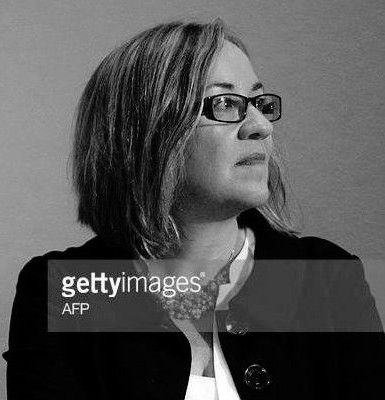
Jo-Marie Burt
Political Science and Latin American Studies, George Mason University
Proposal: “The Guatemalan Genocide Case in Comparative Perspective”
Jo-Marie Burt is associate professor of political science and director of Latin American Studies at George Mason University. She is also a Senior Fellow at the Washington Office on Latin America (WOLA), a human rights advocacy organization. She was awarded her Ph.D. in political science from Columbia University in 1999.
Dr. Burt has published widely on political violence, human rights and transitional justice in Latin America. In recent years, her research has focused on the ways postconflict societies confront demands for justice and accountability after atrocity. She has engaged in research and advocacy in relation to several high-profile human rights trials in the region. For example, she reported on the 2009 Fujimori trial in Peru and the 2013 Ixil genocide trial in Guatemala, organized international observation missions to these trials, and advocated on behalf of the rights of victims to access justice in both instances. She directs an ongoing research project that monitors human rights trials in Peru and Guatemala, and she writes for her blog, Rights Peru, and other media outlets, on trials in Peru, and for the International Justice Monitor and other media outlets on grave crimes cases in Guatemala.
Dr. Burt was a researcher for the Peruvian Truth and Reconciliation Commission and is a member of the advisory board of the Peruvian Forensic Anthropology Team (EPAF) and the Observatorio Luz Ibarburu, a nonprofit organization that monitors human rights prosecutions in Uruguay. She has served as an expert witness in human rights cases in courts in the United States, Peru, and before the Inter-American Court for Human Rights. She has been awarded grants from the Fulbright Foundation, the Open Society Foundations, the United States Institute of Peace, the Aspen Institute, and the Thomas J. Watson Foundation, among others. Dr. Burt is an avid user of Twitter (@jomaburt). Some of her recent publications can be viewed on Academia.edu.
Marta Elena Casaus
History, Universidad Autónoma de Madrid
Proposal: “La violación sexual de las mujeres mayas Ixiles, Achíes y Kekchíes: Un caso comparado de racismo, genocidio y feminicidio”
Doctora en Ciencias Políticas y Sociología por la Universidad Complutense de Madrid, Profesora Titular en Historia de América por la Universidad Autónoma de Madrid. Directora del Master Europeo en Estudios Latinoamericanos: Complejidad Social y Diversidad Cultural ( España) y del Master en Gerencia para el Desarrollo Sostenible, ( Guatemala). Sus principales líneas de investigación son el estudio de las redes familiares y élites de poder en Centroamérica, estudios sobre el racismo, élites intelectuales, formación de la nación y en los últimos años investiga en historia intelectual e historia conceptual. Sus últimas publicaciones, Las redes intelectuales centroamericanas, un siglo de imaginarios nacionales 1820-1930 en coautoría con Teresa García Giráldez, la coordinación de, El lenguaje de los ismos: algunos conceptos de la modernidad en América Latina, FyG editores, 2010 y su último libro, El Libro de la Vida de Alberto Masferrer y otros escritos vitalistas, (2012), son el resultado de sus investigaciones con un amplio equipo de investigadores/as centroamericanas. Sus últimas publicaciones han girado en torno al tema sobre racismo y genocidio en Guatemala.

Manolo e. Vela Castañeda
Sociology, Universidad Iberoamericana, Ciudad de México
Proposal: “Butchers: racism, specialization, group pressure, and incentives. Lessons from the Guatemalan genocide”
Doctor en Ciencia Social con especialidad en Sociología por El Colegio de México. Es profesor investigador del Departamento de Ciencias Sociales y Políticas de la Universidad Iberoamericana, Ciudad de México. Ganador del Premio 2009 Academia Mexicana de Ciencias a la mejor tesis de doctorado. Es miembro del Sistema Nacional de Investigadores de México. Trabaja en su proyecto de investigación: “Desaparecidos. Derechos civiles y políticos en condiciones de alto riesgo, las lógicas del terror estatal, y las luchas por el acceso a la justicia. Guatemala, 1983-2014.” Es profesor de los cursos: Dominación y resistencia desde abajo. Teorías y métodos para el análisis de procesos históricos; Sociología histórica y comparativa; Interpretaciones sobre el cambio; Teoría social clásica; y, Métodos cualitativos. Es autor de: Los pelotones de la muerte. La construcción de los perpetradores del genocidio guatemalteco (El Colegio de México, 2014); y editor de: Guatemala, la infinita historia de las resistencias (Magna Terra, 2011). Ha ganado becas de investigación en University of Notre Dame, Tulane University, University of Texas at Austin. Como intelectual público es columnista en la edición dominical de El Periódico de Guatemala.
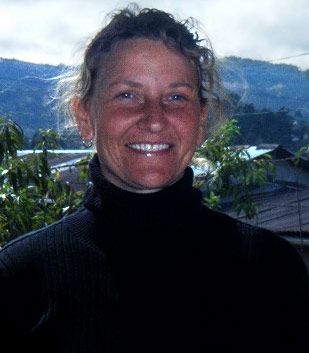
Rebecca Clouser
International and Area Studies, Washington University, St. Louis
Proposal: “Elite erasures and lethal legacies: Examining genocide denial in Guatemala”
Rebecca Clouser is a postdoctoral teaching fellow in International and Area Studies at Washington University in St. Louis. She holds a PhD in Geography from Indiana University. Currently, she teaches courses on human geography, geographies of development, and violence in Central America. Her research is located at the intersection of critical development studies, cultural geography and geographies of emotion. She has authored papers in the Journal of Latin American Geography and Progress in Development Studies. Her current research investigates the multidimensional aspects of the relationship between fear and development projects and processes in post-conflict Guatemala.

Sofía Duyos
Law, Madrid, España
Proposal: “Documentos del ejército y su trascendencia para comprender el genocidio maya ixil”
Sofía Duyos is a lawyer specializing in Human Rights. She earned her degree in Law from the Complutense University of Madrid (Spain), where she studied Criminal Law, Human Rights, and Development Cooperation. Since 2000, she has worked in the Human Rights Office of the Archbishop of Guatemala, conducting research on human rights violations, advocacy, and awareness, including research on violence against women. She has written several articles and coordinated various publications in human rights. During the last five years she has been one of the lawyers litigating the case opened in the Audiencia Nacional Court for genocide against the Mayan people in Guatemala. She has also served as advisor to the Center for Human Rights Legal Action (CALDH), one of the two Guatemalan organizations that served as joint plaintiffs in the case against the former President Rios Montt and his director of intelligence Rodriguez Sanchez.
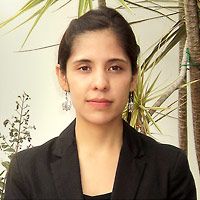
Ana María Méndez Dardón
Law, Canada
Proposal: “Historia personal: Creciendo en la Resistencia”
Abogada, notaria y licenciada en Ciencias Jurídicas y Sociales de la Universidad de San Carlos de Guatemala y posgrado en Mujeres y Derechos Humanos de la Universidad de Chile con distinción máxima. Con formación académica y experiencia profesional en derechos humanos, justicia penal y género, principalmente desde centros de investigación y organizaciones no gubernamentales como investigadora y docenta para operadores de justicia. Docenta sobre Género y Desarrollo Humano en el Programa de Naciones Unidas para el Desarrolla. Así mimso funcionaria pública en instancias de administración de justicia penal (Ministerio Público con la Dra. Claudia Paz y Paz) y recientemente como experta analista en el sistema de justicia para casos de violencia contra las mujeres en la Comisión Nacional para el Seguimiento y Apoyo al Fortalecimiento de la Justicia. Voluntaria en Amenesty International Toronto en la Red de Mujeres y a partir de septiembre inicio maestría en Ciencia Política en la Universidad de Gueph, Canadá.
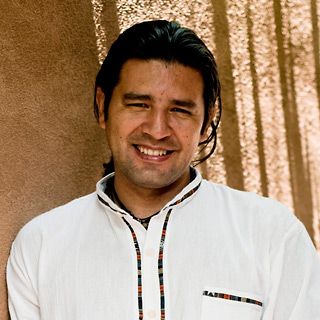
Emilio del Valle Escalante
Romance Languages, University of North Carolina, Chapel Hill
Proposal: “Maya Responses to Genocide in Guatemala: The Poetics of Survival in Sabino Esteban Francisco’s ‘Gemido de huellas’”
Emilio del Valle Escalante (K'iche' Maya, Iximulew) is an Associate Professor of Spanish at the University of North Carolina in Chapel Hill. His teaching and research focus on contemporary Latin American literatures and cultural studies, with an emphasis on indigenous literatures and social movements, Central American literatures and cultures, and post-colonial and subaltern studies in the Latin American context. He is the author of Maya Nationalisms and Postcolonial Challenges in Guatemala: Coloniality, Modernity and Identity Politics (SAR Press 2009). He is completing his second book, Before and After Genocide in Guatemala: Re-Building the Maya World Through Literature (1960-2012)
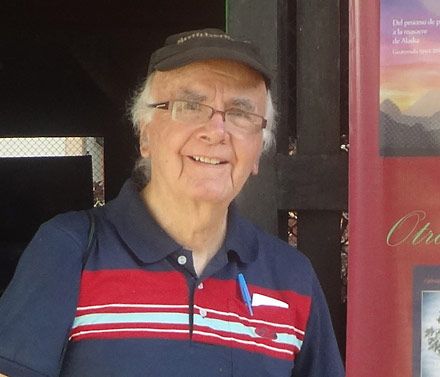
Ricardo Falla
Anthropology, Santa María Chiquimula, Guatemala
Proposal: “Enfoques del Genocidio y la Resistencia, una experiencia personal”
Ricardo Falla, nacido en Guatemala en 1932, jesuita y antropólogo, Ph.D. en Texas U en Austin. Ha realizado trabajo docente por cortos periodos en la URL y en la USAC de Guatemala, y en la UCA de San Salvador. Ha hecho más trabajo de investigación desde institutos, como CIERA (Centro de investigación y estudios de la reforma agraria) en Nicaragua, y CIASCA (Centro de investigación y acción social) en CA sobre temas de organización campesina, cambio religioso, juventud y violencia. Publicaciones principales: Quiché Rebelde (1978), Esa muerte que nos hace vivir (1984), Masacres de la Selva (1992), Historia de un gran amor (1995), Migración trasnacional retornada (2008), Negreaba de zopilotes...(2011) Trabaja actualmente en la publicación de escritos no publicados o dispersos en una colección que se llama Al atardecer de la vida... El cuarto volumen de la colección dice relación a este Congreso: Ixcán. Masacres y sobrevivencia. Guatemala.1982 (2016).
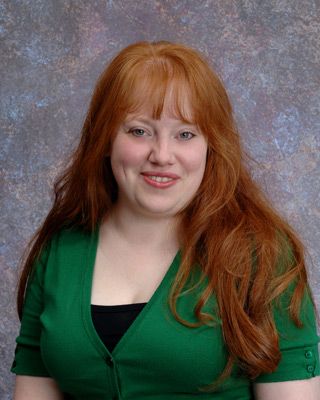
Brigittine French
Anthropology, Grinnell College
Proposal: “Rios Montt's Public Discourse and the Cultural Logic of the Guatemalan Genocide”
Brigittine French is Professor of Anthropology and Chair of the Peace and Conflict Studies Program at Grinnell College. French is a linguistic and political anthropologist whose diverse body of research focuses on theoretical and ethnographic approaches to narrative and testimonial discourse, violence, rights, and democratic institutions in post-conflict nations. Her book, Maya Ethnolinguistic Identity: Violence, Cultural Rights, and Modernity is Highland Guatemala, was published by the University of Arizona Press in 2010 and has received numerous laudatory reviews in the American Anthropologist, Journal of Anthropological Research, Journal of Linguistic Anthropology, and Journal of Latin American and Caribbean Studies. French's recent work has appeared in the Journal of Human Rights, American Anthropologist, Language in Society, andthe Annual Review of Anthropology, among others. Her research has been generously supported by the United States Fulbright Program and the American Philosophical Society.
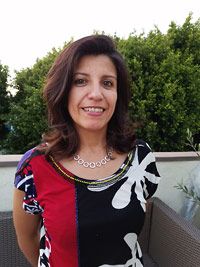
Sandra Gruner-Domic
Social Anthropology, USC Shoah Foundation
Proposal: “Motivaciones sociales y personales para la participación femenina en actos de resistencia antes, durante y después del genocidio en Guatemala”
Sandra Gruner-Domic, PhD, was a lecturer at California State University Long Beach until Summer 2013 and worked for the Sociology and Gender Studies departments at the University of Southern California from 2008- 2011. Before moving to LA, she also taught anthropology and gender studies at Humboldt University Berlin and worked at the Berlin Institute for Comparative Research. She receiving her PhD in 2002 at the Department for European Ethnology at the Humboldt University Berlin. Her research interests are migration, gender, the process of representation and identity in transnational context and genocide. Her publications include a book on Latin American women migration to Germany, Muenster/New York Waxman (2004); “Vietnamese, Mozambican, and Cuban Labor Migrants in East Germany since the 1970s” in Encyclopedia Migration in Europe since the 17th Century, K. J. Bade, P. C. Emmer, L. Lucassen and J. Oltmer eds., Cambridge University Press, New York (2010); “Cosmopolitan Sociability: Locating Transnational Diasporic and Religious Networks,” Ethnic and Racial book series, London/ New York: Routledge (2011), coedited with Nina Glick Schiller, Tsypylma Darieva; La vida intercultural de Promotoras en Los Ángeles. Identidades y pertenencias plurales. Reconstrucción biográfica y observación participativa en: Giebeler, Cornelia (Ed.) (2015) El „Sueño Americano“. She is currently working at USC Shoah Foundation on the Guatemalan project including the collection of survivors interviews.

Susanne Jonas
Latin American & Latino Studies, University of California, Santa Cruz
Proposal: “A Crucial Social Actor Against Genocide: Guatemalan Refugees and Migrants in the U.S.”
An internationally-recognized scholar of Latin America, particularly Guatemala and Central America, for nearly five decades, Susanne Jonas was on the faculty of the Latin American & Latino Studies Department at the University of California, Santa Cruz for 24 years and received a Distinguished Teaching Award. Since the 1990s, she has become a specialist on Guatemalan/ Central American migration. Most currently, she is co-author, with Nestor Rodríguez, of Guatemala-U.S. Migration: Transforming Regions (University of Texas Press, 2014). Among her 20 previous books, Of Centaurs and Doves: Guatemala’s Peace Process was designated a 2001 Choice “Outstanding Academic Book.” Regarding genocide in Guatemala, she has collaborated with the Holocaust Museum in Washington DC, and has contributed the Guatemala chapter for Centuries of Genocide, co-edited by Samuel Totten and William Parsons (2009, 2013, and upcoming new edition).
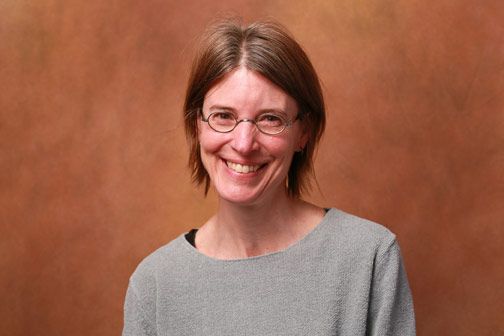
William & Mary
Betsy Konefal
Latin American Studies, College of William and Mary
Proposal: “Mayan Repression, Resistance, and the Road to Genocide”
Betsy Konefal is an Associate Professor of History at the College of William and Mary, specializing in modern Latin America. Her research interests include race and ethnicity, indigenous organizing, human rights, and oppositional politics. She received a Ph.D. in Latin American history from the University of Pittsburgh, 2005; an M.A. in International Affairs from Columbia University’s School of International and Public Affairs (and the Center for the Study of Human Rights), 1996; and a B.A. in International Relations and Latin American Studies from the University of Pennsylvania, 1990. Her publications include For Every Indio Who Falls: A History of Maya Activism, 1960-1990 (UNM Press, 2010, named Choice “Outstanding Academic Title” 2011), and “Subverting Authenticity: Reinas Indígenas and the Guatemalan State, 1978,” Hispanic American Historical Review, vol. 89, no. 1 (Feb. 2009): 41-72. She was a 2012-13 Fulbright Scholar in Ecuador, and is currently working on a comparative study of liberation theology and indigenous organizing in Guatemala, Ecuador, and Mexico.
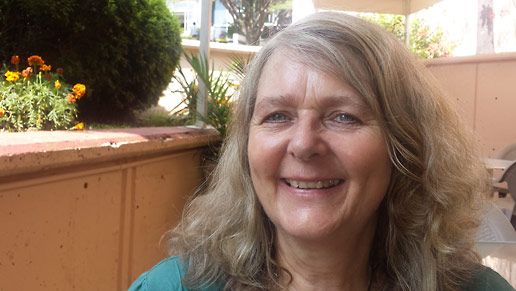
Morna Macleod
Latin American Studies, State Autonomous University of Morelos, Mexico
Proposal: “International Solidarity and Genocide in Guatemala in the Eighties”
Morna Macleod is a researcher and lecturer in the postgraduate program in Social Science at the Autonomous State University of Morelos (UAEM). She has a master’s and doctorate in Latin American Studies from the National Autonomous University of Mexico (UNAM). Her MA thesis was a comparative study on political repression in Chile and Guatemala. She was a human rights worker first with Chile (from London) and then with Guatemala (from Mexico) in the late 1970s, early 1980s. She lived in Guatemala from 1995-2001. Her publications include: “Development or Devastation? Epistemologies of Mayan Women’s Resistance to an Open-Pit Goldmine in Guatemala” in AlterNative, Auckland, Volume 11, Issue 6, 2016, Nietas del Fuego, Creadoras del Alba. Luchas político-culturales de mujeres mayas (FLACSO-Guatemala, 2011), Poder Local: Reflexiones sobre Guatemala (1996). She is currently working on multiple violence in Morelos, Mexico.
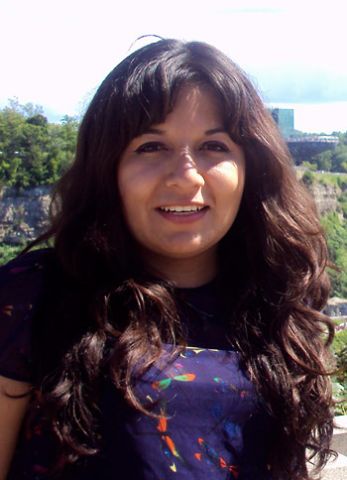
Betsabe Martínez Manzanero
Antropología Social, El Colegio de Michoacán, Mexico
Proposal: “Memoria y resistencia cultural entre los mayas guatemaltecos del sur de México”
Currently, I am PhD student in Social Anthropology at El Colegio de Michoacán, México. At this stage I'm working on the final manuscript of my thesis. I focus on Guatemala's genocide survivors who live in Mexico (specifically in a former refugee camp in Campeche, called Maya Tecún), and also in some persons who took refugee in Canada. I try to understand the forms of the memory and the new paths of mobility of these people, with the project: “Las artes del camino: memoria, movilidad y otros pasajes del refugio guatemalteco.”
Actualmente soy estudiante del doctorado en Antropología Social en El Colegio de Michoacán, México. En esta etapa estoy trabajando en el manuscrito final de mi tesis. Me intereso en los supervivientes del genocidio de Guatemala que viven en México (en concreto en un antiguo campo de refugiados en Campeche, llamado Maya Tecún) y también en algunas personas que se refugiaron en Canadá. Trato de entender las formas de la memoria y las nuevas rutas de movilidad de estas personas, con el proyecto: “Las Artes del camino: memoria, movilidad y otros pasajes del refugio guatemalteco”.
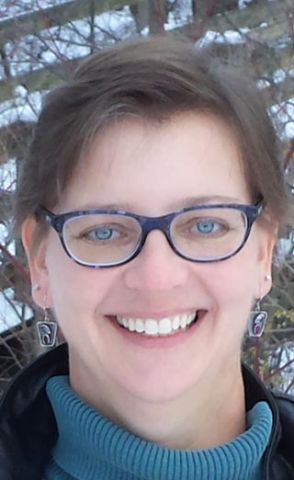
Catherine Nolan-Ferrell
History, University of Texas at San Antonio
Proposal: “The Guatemalan Refugee Crisis in Southern Chiapas, 1980-1984”
Catherine Nolan-Ferrell, Associate Professor of History, received an A.B. from Cornell University, an M.A. from Tulane University, and a Ph.D. from the University of Texas at Austin. Dr. Nolan-Ferrell's research interests are in migration, citizenship, and national identity in modern Mexico and Guatemala, as well as the history of gender in Latin America. Her book, Constructing Citizenship: Transnational Workers and Revolution on the Mexico-Guatemala Border, 1880-1950, (University of Arizona Press, 2012), focuses on how laborers who worked in the coffee industry along the Guatemalan/Mexican border developed an understanding of nationality, particularly after the implementation of agrarian reforms in the late 1930s. Her current work examines the movement of Guatemalan campesinos into southern Mexico and the U.S., both as economic migrants and as refugees. In the 1950s, the Central Americans, particularly Guatemalans, migrated to Mexico in search of better economic opportunities. With the expansion of the Guatemalan civil war (1960-1996), however, thousands of indigenous villagers escaped the violence by becoming refugees in southern Mexico. Families became divided by those who maintained a “Guatemalan”/indigenous identity, and those who “Mexicanized.” Dr. Nolan-Ferrell has been doing archival and oral history field work with these border communities in the summer of 2013.
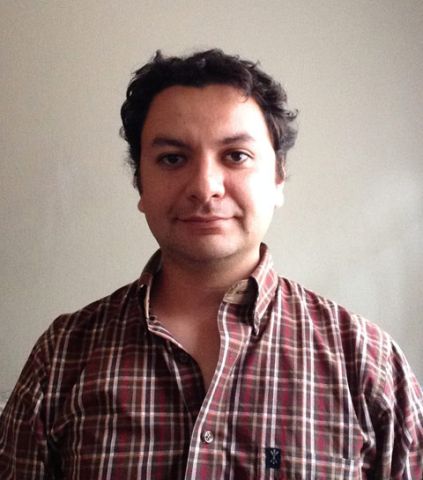
Sergio Palencia Frener
Founder, Mesoamerican Studies Congress
Proposal: “Contrainsurgencia en Chimaltenango, 1978-1983: Comalapa, San Martín Jilotepeque y Poaquil”
Sergio Palencia Frener earned his B.A. in Anthropology and Sociology from Del Valle University in Guatemala. He then earned his M.A. in Sociology and Critical Theory by the “Alfonso Vélez Pliego” Institute at Puebla University, Mexico. He studies the historical relationships between Indigenous Communities and the Guerrilla Army of the Poor, between 1972 and 1982 in Highland Guatemala. He has published the following books: Fernando Hoyos and Chepito Ixil, Encounter and Revolutionary Communion (FGT, 2013), Racism, Capital and State in Guatemala (URL, 2013), Mesoamerica, concept and struggle: historical approach, 1920-2010 (URL, 2014). He has also published several essays in journals in Argentina, Guatemala, Mexico, Nicaragua, France. He is the founder and coordinator of the Mesoamerican Studies Congress (2014, 2016) which strives to stimulate War and Memory studies in this region. In 2014m he presented at two conferences - the Mora Institute and UNAM: “Indigenous Rebellion in the Highlands, 1980-1982” and “Guerrilla patterns in Huehuetenango and Quiché, 1979-1980.”
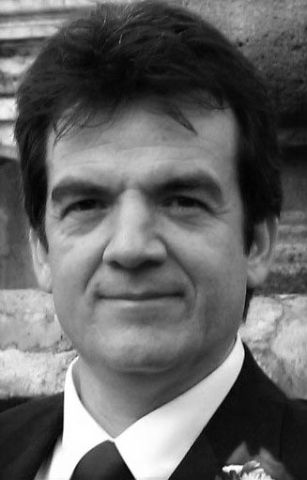
Jorge Ramon Gonzalez-Ponciano
Anthropology, UNAM/Stanford University
Proposal: “El racismo y el “problema indígena” en la prensa guatemalteca antes y después del genocidio”
Jorge belongs to the generation of Guatemalans who were students at the University of San Carlos and had to move to Mexico in the early eighties. Ponciano is currently a Research Affiliate at Stanford University’s Center for Latin American Studies and holds degrees in Anthropology from Stanford University (MA, 1997) and the University of Texas at Austin (PhD, 2005). He is also a full-time Research Professor at the Center for Multidisciplinary Research of Chiapas and the South Border, of the National Autonomous University of Mexico, in San Cristobal de Las Casas, Chiapas.
Much of Ponciano’s published work addresses the relationship of the Liberal state and indigenous populations in Guatemala and Mexico, discourses about the “Civilization of the Indians,” vagrancy and laziness that have been strategic for the labor discipline of plantation economy. He also investigates the cultural history of anti-communism and the pathologization of political opposition, which legitimized the exercise of dictatorship and the naturalization of genocide. His research considers how Guatemalan revolutionary nationalism (1944-1954) and US Cold War anthropology (1954-1962) coincided in the failed effort to construct a homogenous nation. As part of his ethnographic work, he has been working in the human formation of the Mexico-Guatemala border, the construction of the exotic in the Mayan region, and a comparative history of the tourist industry in San Cristóbal de Las Casas, Chiapas and Antigua Guatemala.
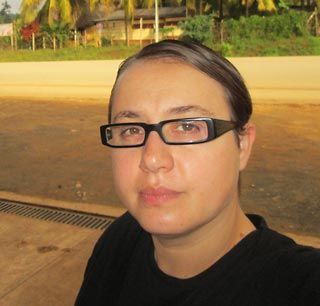
Silvia Posocco
Anthropology, University of London, UK
Proposal: “Traces, Remnants, Genocide: Transnational Adoption in Guatemala in the 1980s”
Dr Silvia Posocco is based in the Department of Psychosocial Studies, Birkbeck, at the University of London. Her research interests are located at the intersections of social anthropology, social theory, gender studies, transnational sexuality studies and queer theory. Posocco has a long-term commitment to ethnographic research in Guatemala, where she first worked with ex-combatants of the guerrilla organization Fuerzas Armadas Rebeldes-Unidad Revolucionaria Nacional Guatemalteca (FAR-URNG). Since 2009, she has worked on legacies of the Guatemalan conflict from the perspective of an ethnography of transnational adoption circuits.
Posocco's publications include the research monograph Secrecy and Insurgency: Socialities and Knowledge Practices in Guatemala (University of Alabama Press, 2015). She is the co-editor of three collections of essays, including Decolonizing Sexualities: Transnational Perspectives, Critical Interventions (with Sandeep Bakshi and Suhraiya Jivraj, Counterpress 2016). She has written numerous journal articles and co-edited a number of journal special issues, including ŒViolence and Affective States in Latin America, Journal of Latin American Cultural Studies, 2016, with Martin Fotta and Frank Smith. Posocco is currently writing a book provisionally titled Traces, Remnants, Genocide: Transnational Adoption in Guatemala.
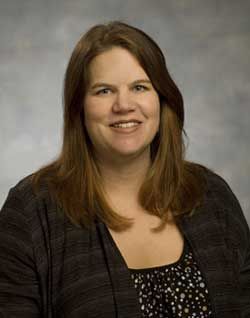
Debra Rodman
Anthropology/Women Studies, Randolph-Macon College, Ashland, VA
Proposal: “Greasing Guatemala’s Military Machine: Genocide Denial in Eastern Guatemala”
Debra H. Rodman is an Associate Professor of Anthropology and Women’s Studies and the Director of the Women’s Studies Program at Randolph-Macon College. She received her doctorate in Cultural Anthropology from the University of Florida, and both her M.A. and B.A. from the University of Miami. She works with Guatemalan transnational communities in Eastern Guatemala and the Northeast United States and serves as an expert witness for Central Americans seeking political asylum. Her research interests include race and ethnicity, gender studies, gender and development, and more specifically the impact of migration on gender and ethnic relations among Ladinos and Maya in Eastern Guatemala. Dr. Rodman former Fulbright Scholar and has received support from the Andrew W. Mellon foundation.
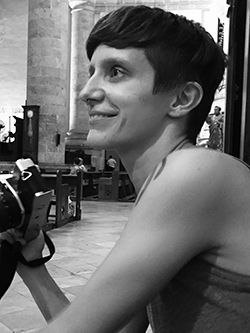
Heather Vrana
History, Southern Connecticut State University
Proposal: “H.I.J.O.S.: A New Politics of Memory beyond Reconciliation”
Vrana, assistant professor of history at Southern Connecticut State University, researches youth, social movements, urban histories, and class formation in modern Central America, with particular interest in how political culture and violence shape class formation. At the conference at USC Shoah Foundation, Vrana will share her research on transitional justice and her ongoing collaboration with Guatemala’s branch of H.I.J.O.S. (in English, Sons and Daughters for Identity and Justice against Oblivion and Silence). H.I.J.O.S. is an activist group that seeks trials and punishment for genocide perpetrators, participates in the defense of human rights and keeps alive the memories of the victims and those still fighting.
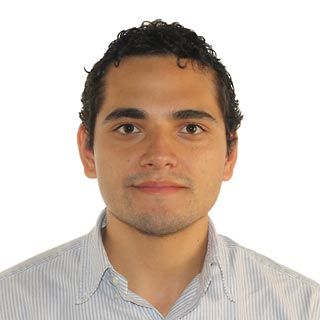
Miguel Zamora-Mills
International Relations, Guatemala
Proposal: “Querrellante adhesivo and the Rios Montt trial”
Miguel Zamora has worked for the past few years with the International Platform against Impunity in Guatemala on issues related to the protection of human rights defenders, strengthening of the justice system and the impact of businesses on indigenous rights. Previously, he accompanied genocide survivors in the Ixil region during the preparatory phase of the genocide case. Currently, Miguel is studying law at Columbia Law School where he focuses on international human rights and constitutional law.
Chairs
Marjorie Becker
Marjorie Becker holds a doctorate and two of her three masters in Latin American History from Yale University. Her Yale dissertation, long taught in graduate courses, reveals the material cultural roots of Lazaro Cardenas, Mexico's most important twentieth century president's approach to government. Long viewed as highly popular, her multi-archival and oral historical work revealed the complex authoritarianism characteristic of his rule. Her other M.A. is in History with a focus on the Deep South, African American History, the multiple relationships between Mexican poet Octavio Paz and the Mexican revolution; this M.A. is from Duke University. She served in the Peace Corps in rural Paraguay, teaching nutrition, textile arts, health and first aid to Paraguayan women and girls, and she did so in the unwritten indigenous Guarani language. She was invited to return to Paraguay to direct the program in which she served. She also worked as a former print journalist writing about race relations, health, the emerging nature of Southern life and culture. She has written and published about the Mexican revolution, its attendant counter-revolution, about the artist Frida Kahlo, about Mexico's distinctly gendered time which she has named "ghost time."
Norma Stolz Chinchilla
Norma Stoltz Chinchilla has been a member of the CSULB faculty since 1983. She teaches courses in social stratification (SOC 420), social change (SOC 357), women in global perspective (W/ST 401), Central American and Carribean People in the U.S. (SOC 341 / CHLS 352), and international social conflicts (I/ST 317 and 318). Her recent research focuses on women's movements in Latin America and Central American immigration to Los Angeles. She was Fullbright Fellow to Guatemala in 1965 and received one of two CSULB Distinguished Faculty Scholarly and Creative Achievement awards for 1996-1997. Her recent book, Seeking Community in a Global City: Guatemalans and Salvadorans in Los Angeles (Temple University Press, 2001), co-authored with Nora Hamilton, Professor of Political Science at University of Southern California, was awarded the 2002 prize for Best Book published in the area of Race/Ethnicity and Foreign Policy/Globalization by the American Political Science Association (APSA).
Beatriz Cortez
Born in El Salvador, Dr. Beatriz Cortez migrated to the United States in November 1989. She obtained a Ph.D. In Latin American Literature from Arizona State University (1999). She specializes in contemporary Central American literatures and cultures from the perspective of gender, identity, and cultural studies. She is the author of numerous articles on postwar Central American literature and culture, exile, the construction of identity, and gender. She has also translated a number of literary and academic texts from Spanish into English. Her book Aesthetics of Cynicism: Post-War Central American Fiction was published in July 2010 by F&G Editores in Guatemala. She is co-author of the reader Introduction to Central American Studies, published by Kendall Hunt in 2008. She is co-editor of the third volume of the collection "Towards the History of Central American Literature" titled Per-Versions of Modernity: Literatures, Identities, and Displacements, published by F&G Editors in Guatemala in 2012 . She co-edited a special issue of Revista Iberoamericana on Contemporary Central American Literature and Cultural Studies, published by the University of Pittsburgh in 2013.
Susan Fitzpatrick-Behrens
Susan Fitzpatrick-Behrens joined the history department at California State University at Northridge, where she teaches classes in contemporary Latin American history, in 2001. Her research examines religion, indigenous communities, and gender in Guatemala and Peru with a special emphasis on the roles that transnational religious networks played in facilitating political and cultural transformation in these countries. By focusing on transnational religious networks, her work also offers a cultural perspective on U.S.-Latin America relations. She is currently working on a manuscript entitled Strange Bedfellows: Catholic-Civil Alliances and their Unintended Outcomes in Revolutionary Guatemala, 1943 – 1996. Dr. Fitzpatrick-Behrens has been the recipient of numerous grants and fellowships, including an American Council of Learned Societies research grant and residential fellowships at the Kellogg Institute for International Studies at the University of Notre Dame and the David Rockefeller Center for Latin American Studies at Harvard University.
Hannah Garry
Hannah Garry is founding director of USC Gould's International Human Rights Clinic. Her areas of teaching and research include international criminal law, international human rights law, international humanitarian law and international refugee law. In 2015, Prof. Garry was the recipient of the prestigious USC Mellon Award for Faculty Mentoring Graduate Students. In terms of practice experience, Prof. Garry has been a Senior Legal Adviser to the Supreme Court Chamber in the Extraordinary Chambers in the Courts of Cambodia and a visiting professor in the Presidency of the International Criminal Court. Before academia, she was a legal officer for the Honorable Judge Fausto Pocar in the Appeals Chamber of the International Criminal Tribunal for the former Yugoslavia and the International Criminal Tribunal for Rwanda from 2004-07. Prof. Garry obtained her J.D. from Berkeley Law in 2002, her Master’s in International Affairs from Columbia University in 2001 and a master's certificate in Forced Migration Studies with distinction from Oxford University, U.K. She is admitted to the New York Bar and is a member of the American Society of International Law where she is a corresponding editor for its International Legal Materials.
Wolf Gruner
Wolf Gruner holds the Shapell-Guerin Chair in Jewish Studies, is Professor of History at the University of Southern California, Los Angeles since 2008 and is the Founding Director of the USC Shoah Foundation Center for Advanced Genocide Research since 2014. He is a specialist in the history of the Holocaust and in comparative genocide studies. He received his PhD in History in 1994 from the Technical University Berlin as well as his Habilitation in 2006. He was a postdoctoral fellow at Harvard University, Yad Vashem Jerusalem, the US Holocaust Memorial Museum and Women’s Christian University Tokyo and the Desmond E. Lee Visiting Professor for Global Awareness at Webster University in St. Louis. He is the author of nine books on the Holocaust, among them “Jewish Forced Labor under the Nazis. Economic Needs and Nazi Racial Aims”, with Cambridge University Press (paperback 2008), as well as over 60 academic articles and book chapters. He also coedited two books, one of them, the translated updated book “The Greater German Reich and the Jews. Nazi Persecution Policies in the Annexed Territories 1935-1945” was published in 2015 with Berghahn Books. Its original German edition received the award for most outstanding German studies in humanities and social sciences in 2012. In 2015 Gruner published on a different topic the book „Parias de la Patria“. El mito de la liberación de los indígenas en la República de Bolivia 1825-1890”, in Spanish with Plural Editores, Bolivia. Gruner’s most recent book is on the Persecution of the Jews in Bohemia and Moravia 1933-45 and forthcoming with Wallstein, Goettingen, Germany.
Patrick James
Patrick James is Professor of International Relations and Director of the Center for International Studies at the University of Southern California (PhD, University of Maryland, College Park). James specializes in comparative and international politics. His interests at the international level include the causes, processes and consequences of conflict, crisis and war. With regard to domestic politics, his interests focus on Canada, most notably with respect to the constitutional dilemma. James is the author of 18 books and over 120 articles and book chapters. Among his honors and awards are the Louise Dyer Peace Fellowship from the Hoover Institution at Stanford University, the Milton R. Merrill Chair from Political Science at Utah State University, the Lady Davis Professorship of the Hebrew University of Jerusalem, the Thomas Enders Professorship in Canadian Studies at the University of Calgary, the Senior Scholar award from the Canadian Embassy, Washington, DC, the Eaton Lectureship at Queen’s University in Belfast, the Quincy Wright Scholar Award from the Midwest International Studies Association (ISA), the Beijing Foreign Studies University Eminent Scholar and the Eccles Professor of the British Library. He is a past president of the Midwest ISA and the Iowa Conference of Political Scientists. James also served a five-year term as Editor of International Studies Quarterly.
Douglas Carranza Mena
Douglas Carranza Mena received his Ph.D. in Social-Cultural Anthropology from the University of California, Santa Barbara, and has taught at California State University Northridge since 2001.
Prof. Carranza is interested in cultural and political issues, particularly in the rigors and conflicts of colonialism in the Central American region. His research agenda is to explore from an interdisciplinary perspective the concepts of space, citizenship, civil society, sovereignty and modes of governing to address Indigenous movements and transnational communities in Central America and in the United States. He has taught a variety of courses that address the Central American diaspora and migration, the contemporary revolutionary processes, modern historiography and identity formation, development, environment and its human impact.
Victoria Sanford
Victoria Sanford is professor and chair of anthropology and founding director of the Center for Human Rights and Peace Studies at Lehman College. She holds a doctorate in Anthropology from Stanford University where she studied International Human Rights Law and Immigration Law at Stanford Law School. She is the author of Buried Secrets: Truth and Human Rights in Guatemala (2003), Violencia y Genocidio en Guatemala (2003), Guatemala: Del Genocidio al Feminicidio (2008), La Masacre de Panzos: Etnicidad, Tierra y Violencia en Guatemala (2009), and co-author of the Guatemalan Forensic Anthropology Foundation's report to the Commission for Historical Clarification (the Guatemalan truth commission). She is co-editor (with Katerina Stefatos and Cecilia Salvi) of The State and Gender Violence (2016). In August of 2012, she served as an invited expert witness on the Guatemalan genocide before Judge Santiago Pedraz in the Spanish National Court’s international genocide case against the Guatemalan generals.
Bonnie Taub
Bonnie Taub, MPH, MA, Ph.D., a medical anthropologist, is Co-Chair of the Latin American Studies MA Program, Associate Director of the Latin American Institute and on the faculty in the Fielding School of Public Health at the University of California, Los Angeles (UCLA). Taub conducts research on indigenous peoples and mestizos in Latin America and among ethnic groups in the United States, and teaches courses about culture, politics and health, community and family health, human rights, traditional medicine/shamanism and Western medicine. She consults and conducts anthropological training and development of cultural assessments for clinicians and non-profits working worldwide.
Carol Wise
Carol Wise joined the School of International Relations at the University of Southern California in 2002 after spending eight years on the Faculty at Johns Hopkins University's School of Advanced International Studies in Washington, DC. She specializes in international political economy and development, with an emphasis on Latin America. She has written widely on trade integration, exchange rate crises, institutional reform, and the political economy of market restructuring in the region. Wise’s recent publications include Unexpected Outcomes: The Quick Rebound of Emerging Economies from the 2008-09 Global Financial Crisis (co-edited with Leslie Armijo and Saori Katada, Brookings Institution Press, 2015), and “Good-bye Financial Crash, Hello Financial Eclecticism: Latin American Responses to the 2008-09 Global Financial Crisis,” Journal of International Money and Finance (co-authored with Manuel Pastor, 2015). Prof. Wise is the 2015 recipient of the Fulbright-Masaryk University Distinguished Chair Grant, Czech Republic.
United States
53.092603, 101.425781